The Jewish community relations field has a long standing concern with issues of quality of life and public safety. It is out of this concern, as well as the belief that Jewish tradition compels us to uphold the sanctity of life and the commandment against murder, that the JCPA has supported a wide range of legislative efforts designed to limit unfettered access to firearms such as the Brady Handgun Violence Prevention Act and the Violent Crime Control and Law Enforcement Act, commonly referred to as the Assault Weapons Ban. While opinion polls indicate broad support for governmental restrictions on the availability of firearms, state legislatures and the U.S. Congress have all too often been hesitant to enact much needed gun legislation. In fact, existing legislation has increasingly come under threat from lobbying efforts from the highly influential gun manufacturers lobby and in 2006, the 10-year-old Assault Weapons Ban was allowed to expire.
While the annual number of deaths from gun violence in other developed countries that restrict gun access is in the teens or low hundreds, nearly 30,000 Americans, including a disproportionate number of young children, are killed each year by firearms and many tens of thousands more are wounded and maimed. The Graduate Institute of International Studies of Geneva, Switzerland, an affiliate of the United Nations, has demonstrated that the rate of firearms deaths in the United States is dramatically higher than other industrialized nations. According to their most recent Small Arms Survey, there are 13.5 firearm deaths per 100,000 people in U.S. By contrast, that rate is 0.46 in Australia, 3.95 in Canada, 1.44 in Germany, 0.07 in Japan, and 0.46 in the United Kingdom.
Furthermore, despite the recent national general decline in crime rates, American gun homicide rates have actually risen during the same period. This problem has been exacerbated by loopholes in many state laws which fail to prevent handgun traffickers, whose criminal records restrict their direct purchase of guns, from using straw purchasers to buy handguns in vast quantities for re-sale in an underground market. On the other hand, we are heartened by proposals under consideration that include, but are not limited to, restricting access to handguns by limiting purchase to one-per-month, authorizing the Attorney General to regulate handguns, requiring handguns to be ballistic fingerprinted prior to sale, making gun owners accountable for leaving guns accessible to children, allowing cities to have the authority to hold gun makers legally liable, limiting assault weapons and magazines, requiring state police to perform background checks in addition to federal NICS checks, limiting concealed weapons, and requiring locking devices.
The costs of gun violence are not only realized in the physical harm caused to the victims and their loved ones but also greatly contribute to expenditures in health care, law enforcement and lost productivity. The psychological impact of gun violence, especially among young people, is also profound. Far from being an urban problem alone, the destructive impact of gun violence is widespread and knows no geographical or racial boundaries. The recent shootings in rural Pennsylvania, at the Seattle Jewish Federation last July and in suburban schools throughout the nation serve to dramatize the ubiquitous nature of this crisis. With more guns in more hands, due to the relative ease of both legal and illegal distribution, minor disputes have increasingly turned into gun violence, injury, and death.
We call upon the Jewish community relations field to:
- Raise awareness within the Jewish and general community regarding the nature and scope of the gun violence crisis in America and encourage more active advocacy on this issue;
- Make common cause with those governmental officials, law enforcement professionals, health care providers and gun violence prevention activists who are advocating for reasonable and effective legislation that will appropriately limit access to handguns especially as it relates to the unlimited purchase of handguns; and
- Advocate for funding to address comprehensive, efficient, coordinated solutions to gun violence.
